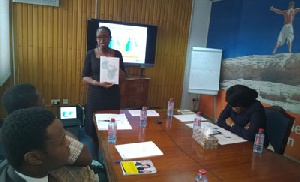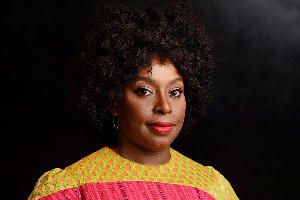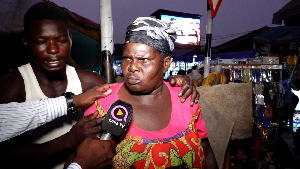Findings from a survey commissioned by Barclays Africa among some 7,052 people in 11 countries on the continent have indicated that in order to prosper, Africans need to achieve financial freedom now and in 10 years’ time.
The 2014 Barclays Africa Prosper Report, which captured what ‘prosper’ means to Africans, evolved from an online survey, which investigated the views of respondents from South Africa, Zambia, Botswana, Kenya, Ghana, Mozambique, Seychelles, Mauritius, Tanzania, Uganda and Zimbabwe.
Data collection started from April 14, 2014 to August 8, 2014.
Shola Sarfo-Duodu, Corporate Affairs Head at Barclays Ghana, who presented the findings to journalists in Accra, said most of the respondents were found to be focused on the future.
“One of the most important findings of the survey showed a high-level of savings and investment. As many as 49 percent of all respondents said they would invest or save an extra US$100 if they had it, 14.7 percent would use it for education and skills-related expenses and 13.2 percent would use it to pay off their debt. This indicates good savings intentions and a readiness to make sacrifices for education and training as a strategy for prosperity.”
She stated that 82 percent of Ghanaians and 63 percent Kenyans were more likely to invest additional funds compared to the overall score. South Africans were less likely to invest and were slightly more inclined to pay off debt.
Barriers to prosperity
The three major obstacles to financial prosperity reported by survey participants included a lack of finance (68 percent), a lack of opportunity (50 percent) and a lack of financial advice (26.2 percent).
The lack of finances was a more prominent barrier in Zimbabwe (75 percent) and Kenya (72 percent).
Helping to achieve prosperity
The survey asked respondents what they would buy to assist them in their journey towards prosperity. Almost a third (30 percent) said that they would purchase a computer, while 24 percent indicated that they would purchase books. Respondents in Botswana (30 percent) preferred books over computers, while the need for a computer was more prominent in Uganda, Zimbabwe and Kenya.
Seeking advice
Overall, 48 percent of respondents indicated that they would first consult a bank for advice on how to prosper financially, followed by a family member and the internet (both at 10 percent).
Asked how a bank could help them achieve financial prosperity, most of the respondents said that banks should clearly explain their savings (56 percent) and loan (34 percent) options and develop products to create financial security for themselves and their families (41 percent).
Business News of Wednesday, 29 October 2014
Source: Daily Guide













